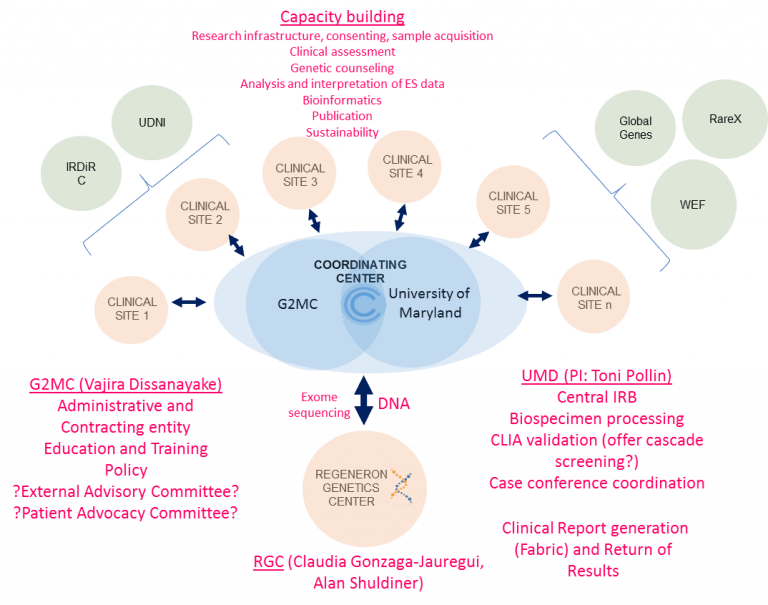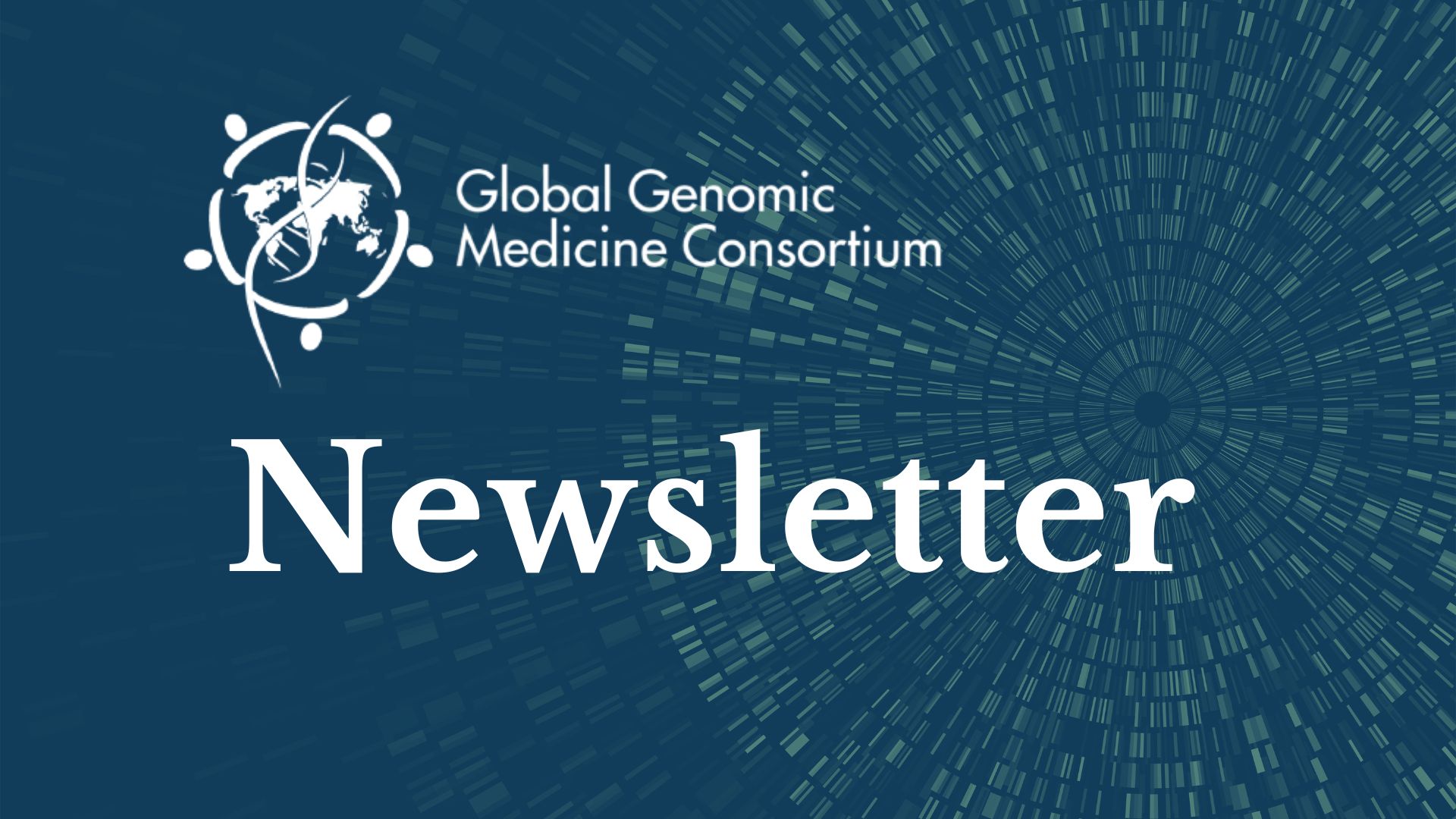Rare Undiagnosed Diseases Flagship Project Update

Rare Diseases has been identified by The Global Genomic Medicine Collaborative (G2MC) as one of its key areas for implementation and capacity building. The rare diseases flagship project is underpinned by strengthening existing resources at the national and international level by forming clinical, diagnostic and research partnerships with the G2MC network of nearly 200 scientists, clinicians and trainees from all over the world. It aims to implement evidence-based exome sequencing for the diagnosis of rare uncharacterized and undiagnosed diseases in low and middle income countries (LMICs). This project also envisions rapid translation and implementation of genetic diagnosis through the exchange of information between clinicians and researchers to reduce the diagnostic odyssey associated with a rare disease.
The main objectives of this initiative are to implement exome sequencing in children and adults with a rare and undiagnosed disease for diagnosis and genome-informed patient care, establish a global network for LMICs in this area to train local clinicians and providers, implement rare disease diagnosis using next generation sequencing, and evaluate outcomes. As such 16 collaborator sites across 4 continents have joined the G2MC Rare Undiagnosed Diseases Flagship Program. These sites were selected based on their capacity to serve and care for a diverse population of patients and hence serve as recruitment centers. These sites care for patients in communities that have not been extensively studied concerning their genetic architecture, including many founder and consanguineous populations. Clinical conditions observed at these collaborator sites are diverse across virtually all organ systems. Additional collaborator sites are expected to join throughout this 3-year project. G2MC and the University of Maryland will play coordination roles for the project.









